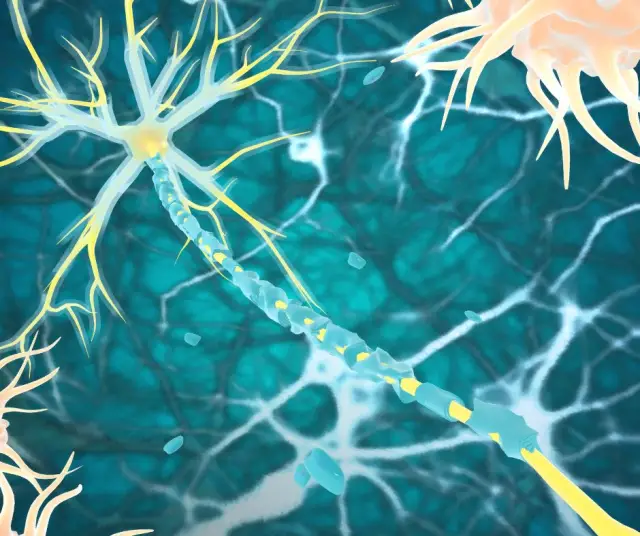Multiple sclerosis (MS) is a chronic, autoimmune disease of the central nervous system (CNS) that affects more than two million people worldwide. It is characterized by inflammation, demyelination, and axonal damage in the brain and spinal cord, leading to a variety of neurological symptoms that can vary in severity and duration.
Etiology and Risk Factors
The etiology of multiple sclerosis ( MS ) is multifactorial and is not yet fully understood. However, there is evidence suggesting a complex interaction between genetic, environmental and immunological factors in the development of the disease.
Genetic studies have identified certain genes that increase susceptibility to MS. People with affected first-degree relatives have been found to have a higher risk of developing the disease. However, these genes are not determinants by themselves and genetics alone cannot fully explain the incidence of MS.
In addition to genetic factors, environmental factors have been shown to play a role in the development of MS. Exposure to certain viruses, such as Epstein-Barr virus, has been associated with an increased risk of developing the disease. Other environmental factors, such as vitamin D deficiency, exposure to tobacco smoke, and obesity, have also been linked to an increased risk of MS.
The immune system plays a central role in the pathogenesis of MS. The disease is thought to develop when the immune system mistakenly attacks the body's own nervous tissue. This triggers an inflammatory response that damages myelin, the protective layer that covers nerve fibers in the brain and spinal cord. This inflammation and resulting damage to the central nervous system lead to the characteristic symptoms of MS.
Pathogenesis and Clinical Manifestations
The pathogenesis of multiple sclerosis involves an abnormal immune response in which the immune system attacks myelin, the protective layer surrounding nerve fibers in the CNS. This inflammation results in the formation of lesions, which can appear in multiple areas of the brain and spinal cord. Symptoms of MS vary widely and can include fatigue, muscle weakness, balance and coordination problems, visual disturbances, cognitive difficulties, and disturbances in bladder and bowel control.
Diagnosis and Evaluation
Diagnosing multiple sclerosis can be complicated, as there is no single test that can definitively confirm the disease. Doctors usually rely on the patient's medical history, observed symptoms, imaging tests such as magnetic resonance imaging (MRI), and nerve function tests to make a diagnosis. Additionally, blood tests and spinal taps may be performed to rule out other conditions that may mimic MS symptoms.
Treatment and Management
The treatment and management of multiple sclerosis (MS) is equally complex and multifaceted, encompassing a variety of pharmacological and non-pharmacological approaches to control symptoms, prevent relapses, and slow disease progression.
Disease-modifying drugs (DMDs) are a cornerstone in the treatment of MS. These medications, which include interferons, glatiramer acetate, teriflunomide, fingolimod, among others, are designed to modulate the immune response and reduce inflammatory activity in the central nervous system. By decreasing the frequency and severity of relapses, these drugs may help prevent long-term neurological deterioration.
In addition to MMEs, corticosteroids, such as methylprednisolone, are commonly used to treat acute MS flares. These medications have anti-inflammatory properties and can speed recovery from acute symptoms, although they do not alter the natural course of the disease in the long term.
To address the specific symptoms of MS, various complementary therapies are used. Physical therapy can help improve muscle strength, balance, and coordination, while occupational therapy can teach techniques to adapt to physical and cognitive limitations. Speech therapy can be beneficial for those who experience difficulties with speech and swallowing, and speech and language therapy can help improve communication in those with cognitive dysfunction.
Research in the field of multiple sclerosis is constantly evolving, with numerous studies focused on better understanding the pathogenesis of the disease, identifying new therapeutic targets and developing more effective and safer treatments. In particular, gene therapy, myelin repair, and immune system modulation are promising areas of research that could radically change the treatment landscape in the future. Additionally, precision medicine, which uses genetic and molecular information to personalize treatment to each patient's individual characteristics, could revolutionize the way multiple sclerosis is addressed.
Multiple sclerosis is a complex and heterogeneous disease that affects individuals throughout the world. Although advances in the understanding and treatment of MS have been significant in recent decades, there are still many aspects of the disease that require additional research. With a multidisciplinary approach involving clinicians, researchers, patients and caregivers, it is possible to move toward a more complete understanding of multiple sclerosis and improve outcomes for those living with this debilitating disease.
